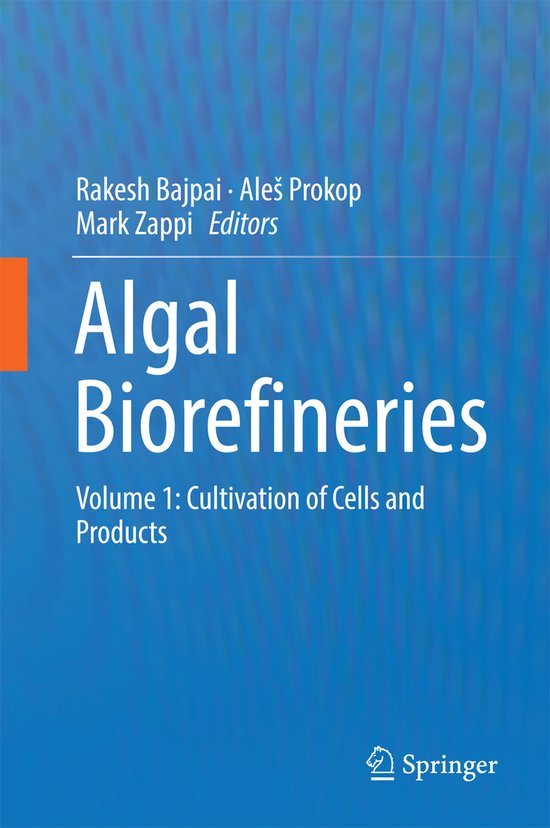Rbizo.com
Algal biorefineries

Rubriek: Textual/Printed/Reference Materials - Boek
Prijs: € 49.14
Rating: 0/5
☆
☆
☆
☆
☆
Verzending:
Uiterlijk 9 oktober in huis
Uiterlijk 9 oktober in huis
Inhoudsopgave:
Omschrijving:
Over the past century, the majority of chemical and energy needs of our industrial society has originated from fossilized carbon sources (coal, crude oil, natural gas).
Over the past century, the majority of chemical and energy needs of our industrial society has originated from fossilized carbon sources (coal, crude oil, natural gas). Increasingly, there is a realization that utilization of the fossilized carbon sources has adverse environmental consequences in the form of increasing concentration of greenhouse gases. We are also becoming aware of the limited nature of these resources. As a result, considerable efforts are being made to produce chemicals and fuels from renewable resources such as forest products, agricultural residues and plant products. All of these systems capture solar energy and atmospheric carbon dioxide as a part of the natural carbon cycle. Serious research efforts are also underway, targeting cultivation of photosynthetic autotrophic microbes for the production of biomass and lipids. In this category, algae appears to offer the most potential for capturing solar energy and atmospheric carbon dioxide and delivering sufficient quantities of biomass/lipids that can offset the fossilized carbon utilization in a meaningful manner without impacting food output adversely. However, several advances, both technologically as well as politically, are needed before we can realize its full potential. It is also clear that a biorefinery approach must be undertaken in order to harvest renewable energy and chemicals from algae economically.
This edited, multi-authored volume on Algal Biorefineries will document new advances involving algae-based technology.
Over the past century, the majority of chemical and energy needs of our industrial society has originated from fossilized carbon sources (coal, crude oil, natural gas). Increasingly, there is a realization that utilization of the fossilized carbon sources has adverse environmental consequences in the form of increasing concentration of greenhouse gases. We are also becoming aware of the limited nature of these resources. As a result, considerable efforts are being made to produce chemicals and fuels from renewable resources such as forest products, agricultural residues and plant products. All of these systems capture solar energy and atmospheric carbon dioxide as a part of the natural carbon cycle. Serious research efforts are also underway, targeting cultivation of photosynthetic autotrophic microbes for the production of biomass and lipids. In this category, algae appears to offer the most potential for capturing solar energy and atmospheric carbon dioxide and delivering sufficient quantities of biomass/lipids that can offset the fossilized carbon utilization in a meaningful manner without impacting food output adversely. However, several advances, both technologically as well as politically, are needed before we can realize its full potential. It is also clear that a biorefinery approach must be undertaken in order to harvest renewable energy and chemicals from algae economically. This edited, multi-authored volume on Algal Biorefineries will document new advances involving algae-based technology.
- 1 Bekijk alle specificaties
Beste alternatieven voor u.
Product specificaties:
Taal: en
Bindwijze: Hardcover
Oorspronkelijke releasedatum: 15 oktober 2013
Aantal pagina's: 324
Illustraties: Nee
Hoofdredacteur: Rakesh Bajpai
Tweede Redacteur: Ales Prokop
Co Redacteur: Mark Zappi
Hoofduitgeverij: Springer
Editie: 2014 ed.
Extra groot lettertype: Nee
Product breedte: 155 mm
Product lengte: 235 mm
Studieboek: Ja
Verpakking breedte: 155 mm
Verpakking hoogte: 235 mm
Verpakking lengte: 235 mm
Verpakkingsgewicht: 6944 g
EAN: 9789400774933